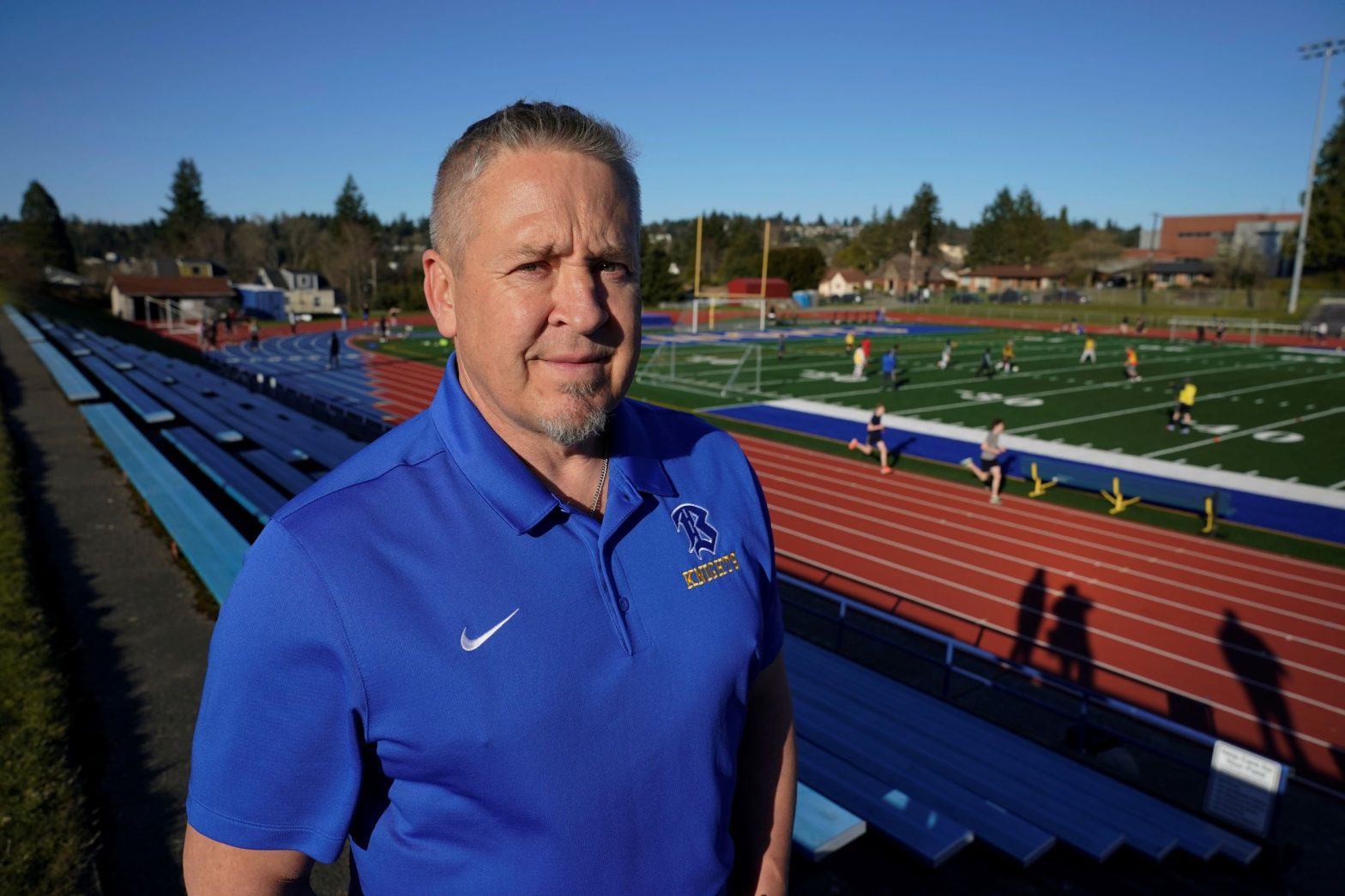Supreme Court Gives Another Chance to Coach Who Prayed After Games

WASHINGTON — The Supreme Court’s conservative majority seemed to favor a high school coach who claimed a constitutional right to pray on the 50-yard line after football games during oral arguments Monday.
His school district administrators in Bremerton, Washington, disagreed. They told him his public prayers entangled the school with religion in a way that violated the constitutional requirement of separation of church and state, also known as the establishment clause.
“You cannot engage in demonstrative religious conduct while you are on duty for the district,” the school board told Bremerton High School coach Joe Kennedy in a letter.
Kennedy continued to pray on the field, compelling the school district to put him on paid leave. He did not reapply to be a coach after his contract expired the next year.
He sued the school district, accusing it of violating his First Amendment right to freedom of religion.
The key issue is whether Kennedy was praying as a private citizen with rights guaranteed by the First Amendment or a school employee whose prayers violated the establishment clause.
Justice Clarence Thomas said the facts showed Kennedy’s prayer did not indicate he was trying to make a public spectacle. “We know it is not a part of his job,” Thomas said.
Justice Amy Coney Barrett pointed out that if Kennedy was trying to communicate to God with his prayer rather than an audience on the football field, “that’s protected speech.”
The more liberal justices suggested the coach’s prayer could be interpreted as coercion of children by his example.
“Sixteen-year-olds can’t be expected to be adults,” said Justice Sonia Sotomayor.
She also implied that the public nature of Kennedy’s prayer while he still was on duty could be interpreted to mean he was acting on behalf of his school.
“He’s the one who decided to publicize his prayer,” Sotomayor said.
Referring to his prayers on the 50-yard line, “What religion requires you to do it at that spot.”
Richard Katskee, the Bremerton School District attorney, said Kennedy intended his prayer as a public demonstration, often inviting students and other persons present to join him in prayer. He explained his actions later as trying to set an example for the students.
“He insisted on audible prayers on the 50-yard line with students,” Katskee said.
He added, “Some of these kids were just 14 years old.”
Kennedy started praying alone after games when he was hired by the high school in 2008. By 2015, when he was placed on leave, he often was joined by about 20 students.
His lawsuit failed in the U.S. District Court and in the Ninth U.S. Circuit Court of Appeals in San Francisco, California.
“Kennedy made it his mission to intertwine religion with football,” the Ninth Circuit’s majority opinion said.
It added, “He led the team in prayer in the locker room before each game, and some players began to join him for his postgame prayer, too, where his practice ultimately evolved to include full-blown religious speeches to, and prayers with, players from both teams after the game, conducted while the players were still on the field and while fans remained in the stands.”
The Supreme Court’s ruling in the case of Kennedy v. Bremerton School District, 21-418, is expected in late spring.
Tom can be reached at [email protected]






















